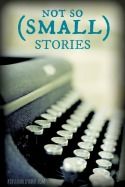Our strawberries finally came in. We picked nine last night,
and my eldest daughter sat on the kitchen floor afterward, hand to mouth in
near frenzy, fruit tinting her fingers red. Last year the sun scorched the
leaves in the first weeks after planting; eventually we built a tiny tent to
shield them. We saved the plants but saw no fruit.
Consider
for a moment the uncanny design, the mechanism and meaning, the implications
and metaphors inherent in fruit.
It’s possible for seeds to disperse
without it. There are many other means of seed dissemination: the hundred
parachutes flying from dandelion, the seed pods floating gently downstream.
Think of how effortlessly the cottonwood tree fills the air with its puffed
masses of seed, seed, seed.
These
rely, for better or for worse, on blind chance. Wind and water are
temperamental carriers. They arrive at will and do as they please.
Fruit, however, is distinctly made to
appeal. We animals are predictable in our taste for all things sweet. The
animal eats, then chucks or spits or defecates the seeds on the side of the
road. Sorry to be graphic, but there you have it.
Animals and fruiting plants climb
hand-over-fist into mutual prosperity. The fruit feeds the animal; the animal
scatters the seed; both win higher odds at reproduction. Is it any wonder that
God crammed Eden full of fruit?
There are plants that cannot
reproduce without fruit. A strawberry plant, however, has a choice.
The strawberry, if it’s too hot or
too wet, starving or overfed on nutrients, sucked by pests or drained by pathogens,
lacking bees or butterflies or some other agent to aid pollination...that’s it,
folks: No fruit, no seeds.
Forget fruit, says the strawberry
under pressure. Fruit is an extravagance. Fruit requires enormous effort and
energy and diverted resources. And if nothing picks it up, it’ll simply fall
right near the parent root; a bit of a waste, considering.
Under pressure, a strawberry will breed
without seed. Under pressure, it will simply and quietly shoot out a runner,
find an anchor point, and belly crawl forward.
So
why fruit?
The whole appeal of fruit is its far reach. A strawberry's runner may only go so
far, but a fruit could travel, in the pocket of a carrier,
miles in the course of a single sunny day.
So when the strawberry is healthy, it fruits.
A strawberry, therefore, is not made to crawl through the dust but to reach new territory.
But I asked you some time ago to
consider the metaphor. The fruit wrought of your own hands.
For me, writing is: Seed, seed,
seed, and hope that something takes. It seems an impossible business. Each
piece I write requires enormous time, effort, energy diverted from other tasks.
If no one picks it up, it’ll drop at my own feet: a waste. (On the coffee table at this
very moment: another form rejection. How long shall I continue this way?)
A strawberry plant may belly crawl
forward in the dust, searching for anchor points, familiar ground to cling to,
and sometimes I wish I could skip fruit altogether. Fruit is exhausting. Wouldn’t it be easier? To
content myself with a simpler life, to quit this calling, to stop sending missives into a world that
won’t miss me, that is everlastingly absorbed in its own handiwork?
But I am not made to crawl through the dust. And I can’t stop considering it: the
landscape outside of my own patch of earth, where my own hard-wrought fruit may land and find soft soil.

